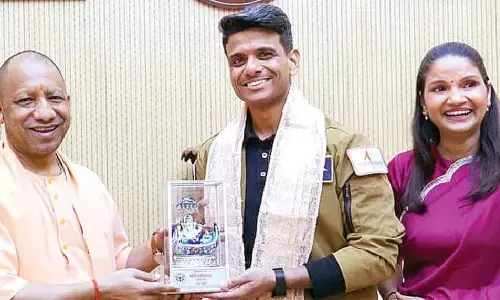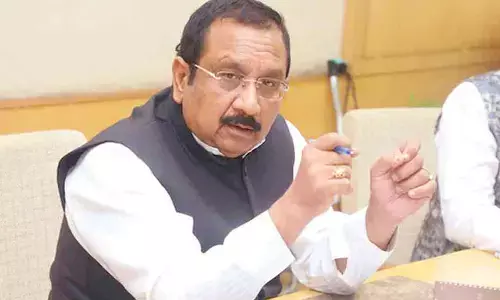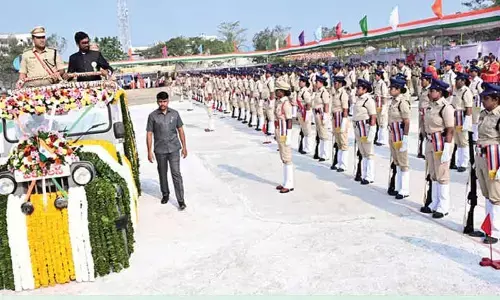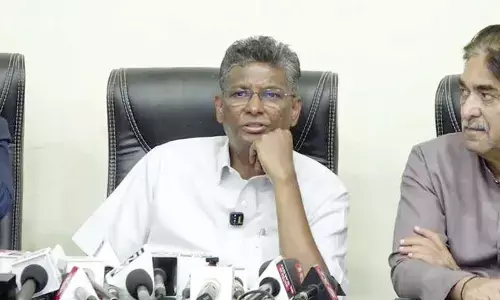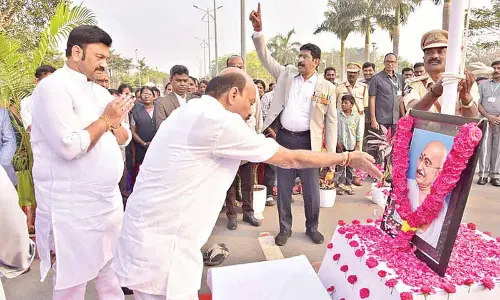Revised PCPIR norms to give a push to Vizag-Kakinada corridor

Associate Director of WTC Srujana, Director, Indian Institute of Petroleum & Energy (IIPE) Prof VSRK Prasad, Technical Head, Megha Engineering & Infrastructures Limited (MEIL) K Satyanarayana, General Manager of BPCL Tharun Kumar, and President of Hyderabad Management Association and Founder of Om Sai Andhra Paints Kavita Rajesh
Visakhapatnam: More initiatives are required to make the Visakhapatnam-Kakinada PCPIR (Petroleum, Chemicals and Petrochemicals Investment Region) successful as the region has all the ingredients to turn into a vibrant industrial zone.
Indian government had announced four PCPIRs in the country which include Dahej in Gujarat, Paradeep in Odisha, Cuddalore and Naghapattinam in Tamil Nadu and Visakhapatnam-Kakinada in Andhra Pradesh. However, barring Dahej, no significant development has not materialised in any other regions.
"For some reasons, except Dahej, all other PCPIRs have not picked up. Andhra Pradesh has many advantages to make Vizag PCPIR a successful model for promoting petrochemical investments in the country. The state has a long coastline, sound road and rail network apart from good port infrastructure. I hope that with the changes in the PCPIR norms, this will now be a reality," said K Satyanarayana, Technical Head-Oil Rigs, MEIL, addressing the Bizz Buzz Business Conclave' in the port city of Visakhapatnam.
The two-day 'Bizz Buzz Business Conclave' organised by The Hans Group and Bizz Buzz, kick started on Friday with a theme of 'Visakhapatnam, the City of Destiny.'
The session on petroleum sector had a theme of 'Petrochemicals - Innovating for a carbon neutral future'. Delegates attending the event also opined that technology has evolved now to make petroleum products a zero wastage one with all the input being utilized for producing various products. This, in way, can ensure a carbon neutral environment.
"There was a time when around 70 per cent of the crude oil used to remain unutilized with only the rest turning into petroleum products. However, this is not the case now. Technology today can enable producers to utilize all the input into various products. This can reduce wastage and help in achieving the aim of being carbon neutral."
Professor VSRK Prasad, Director at Indian Institute of Petroleum and Energy, said that petroleum by-products like plastic have started to be used in road construction and other useful products through recycling of plastic. "So, much of the hazardous waste comes from petroleum refines and its by-products can now be used in various other segments," Prasad added.
Meanwhile, Tarun Kumar, General Manager at BPCL said that the public-sector refiner has entered into the chemical products segment after the operationalisation of its Rs6,000-crore PDP (propylene derivatives petrochemical) complex in Kochi.
"We have entered into the chemical product category to make the country reduce its dependence on import of these products. This will help in reducing the wastage and making the sector carbon neutral," said Kumar of BPCL.
Another delegate, Kavita Rajesh, President of Hyderabad Management Association and Founder of Om Sai Andhra Paints said that the country is depending on China for inputs for the paint industry. "Production of more chemical products like Titanium Dioxide inside the country will help the paint industry in reducing dependence on imports," she said.








